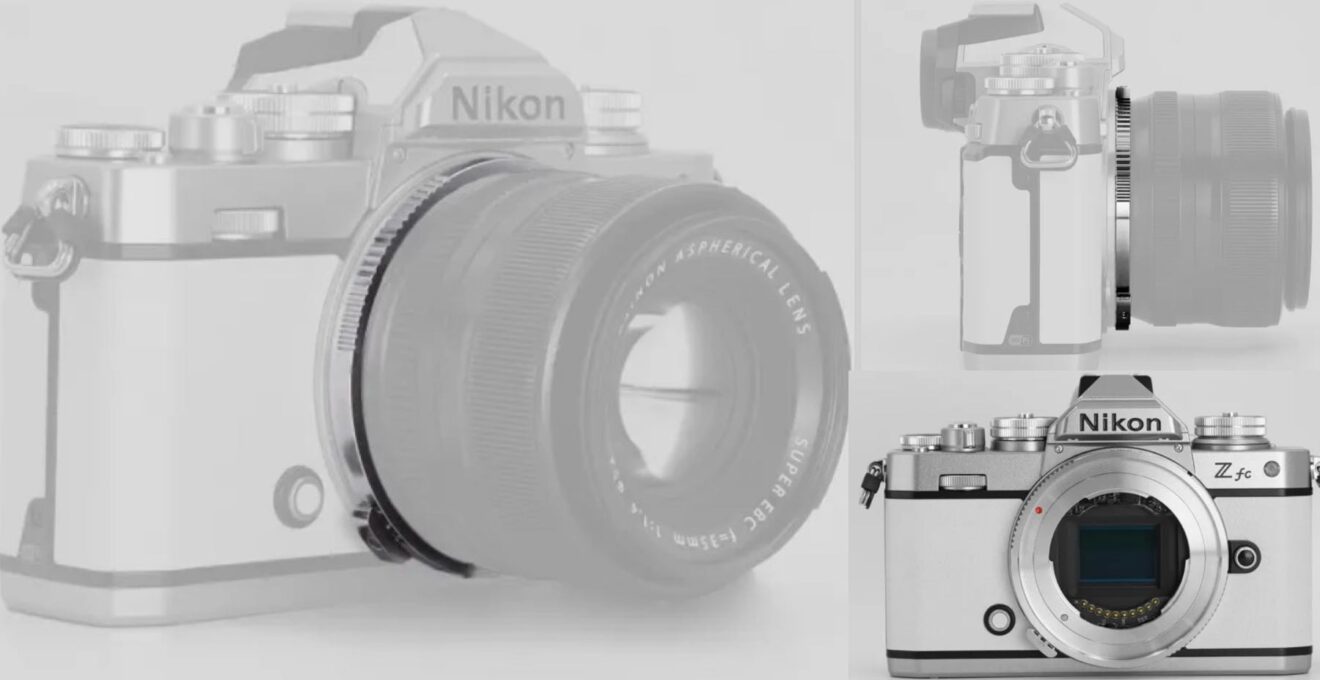
When Nikon released its first Z mount APS-C in 2019 (the Nikon Z50) there was one major problem with it – there were hardly any dedicated lenses to choose from. Things have since improved and now there are 5 Nikkor Z mount DX lenses available. Very soon users will have access to the massive range of Fujifilm lenses thanks to the new Boryoza FX-Z AF lens adapter.
With the new Boryoza adapter, Nikon users will have access to loads of Fujifilm lenses including a range of high-quality primes, zooms, wide-angle and telephoto lenses. With more than 40 lenses to choose from such as the supertelphoto Fujifilm XF 150-600mm f/5.6-8 R LM OIS WR, the professional Fujinon XF 50-140mm f/2.8 R LM OIS WR or even the Fujinon XF 56mm f/1.2 R lens which delivers beautiful rounded bokeh and silky smooth background blur while keeping the in-focus sections pin sharp.
It’s all very well and good releasing a new camera, but if the selection of lenses is limited, people might start looking elsewhere. We love the Nikon Z50 and Z30 but it does feel a little bit like Nikon has forgotten about massively expanding its DX lens lineup. You can of course use any Nikkor S lens designed for full-frame cameras but these are generally bigger, more expensive, and heavier than the APS-C equivalents. Chances are if you’ve gone for an APS-C body you’re looking to save on all of the above.
This is where adapters come into their own. Adapters are quite possibly one of the most underrated bits of kit in the photography world. They’re relatively cheap to buy, they make it possible to shoot with lenses made by other brands and can save you from having to fork out on a whole set of expensive lenses straight away if you’re switching systems. One of the downsides to adapters is that the cheaper ones sometimes don’t allow you to use the autofocus feature, which is why we’re so excited by the announcement of the new Boryoza lens adapter.
FujiRumors describes the Boryozac adapter as the thinnest AF adapter on the market, and say it is compatible with both autofocus and automatic aperture priority modes. It also supports the image stabilization of those X-mount lenses that have it, passes on the EXIF information, and its firmware can be updated. According to Asobinet, prices will start at 1480 yuan or around $208 / £165 / AU$315.
As things stand there are just five DX lenses available for Nikon Z cameras (compared to 39 for its full-frame models such as the Z6 or Z9). In fairness, they do cover a massive focal range and include the Nikkor Z DX 24mm f/1.7, DX 12-28mm f/3.5-6.3 VR, DX 18-140mm f/3.5-6.3 VR, DX 16-50mm f/3.5-6.3 VR, and the DX 50-250mm f/4.5-6.3 VR. None of the lenses is particularly fast except for the only prime lens so there is indeed demand for better lens selection and we reckon this will be a popular purchase among Nikon mirrorless APS-C users.
I might be a little biased as I used to own a Fujifilm X-T3 which I loved, but if you haven’t already bought an APS-C route I would seriously consider going down the Fujifilm route instead. They are the OG retro camera brand and you won’t need to buy an additional adapter to access the amazing range of lenses. But if that’s not the case and you already have a Nikon, I would buy this as soon as I could – it’s a bit of a game-changer.
If nothing here works for you, why not explore our guide to the best Nikon lenses.







